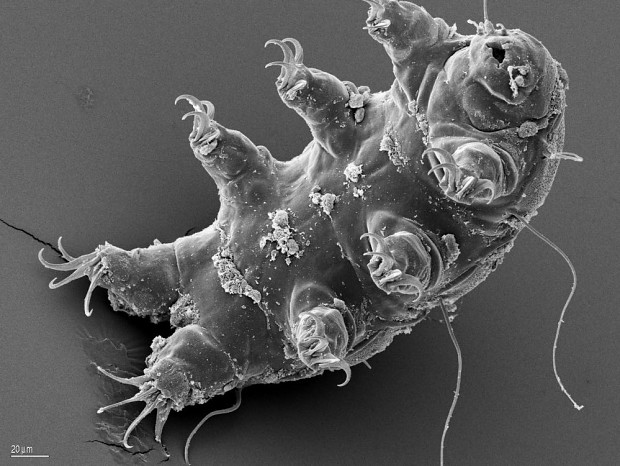Science!
Educational
A group for those interested in science from the vast expanse of the universe or technology.
Tardigrades occur throughout the world, from the Himalayas, above 6000 m, to the deep sea, below 4000 m, and from the polar regions to the equator.
Tardigrades range from 0.3 to 0.5 mm. They are able to survive in extreme environments. They can survive temperatures close to absolute zero, or 0 Kelvin (−273 °C), temperatures as high as 151 °C, they can survive more than 1200 times the atmospheric pressure, 1000 times more radiation than other animals and almost a decade without water. In 2007, tardigrades have being taken into lower orbit and exposed to the vacuum of space (exposing them to extremely low pressure) for about 10 days, to later return to Earth alive.
The animals are one of the few groups of species that are capable of reversibly suspending their metabolism and going into a state of cryptobiosis (a sort of stasis). While in this state their metabolism lowers to less than 0.01% of normal and their water content can drop to 1% of normal. And all that is needed to revive the animal is some drops of water and it will reanimate itself in less than an hour.







Isn't life beautiful?
Nature is so perfect.
No, not at all. If it was perfect, Evolution wouldn't work.
The nature is beautiful. Is very intelligent. And also is the most perfect thing in this world and the whole universe. But nothing is really perfect...
Then our nature did a great mistake: CREATE US.
We are very evil. So evil than also we hate each other. We are very destructive, very killer, very DEADLY. We are the sh*t of this planet and also very retarded that we don't know that WE ARE DESTROYING THE EARTH!!!!!!!! ANIMALS THAT LOST HIS LIFE BECAUSE OF US!!!!!!!!!! PREDATORS NEED MEAT. BUT OUR RACE WANTS TO CREATE MORE FACTORIES THAT CREATES AMBIENTAL CONTAMINATION AND DESTRUCTION!!!!!!!!!!!
WE CANNOT CONTINUE LIKE THIS!!!!!!!!
I just hope that the 2012 End of the World is going to be real...